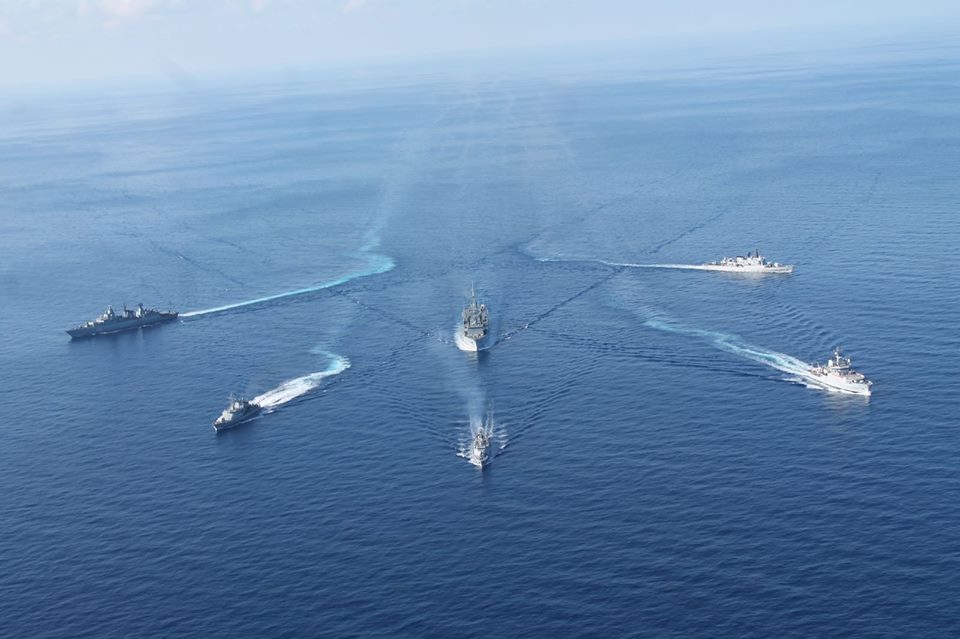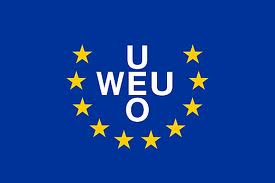Doctorants : à vos plumes…
 (BRUXELLES2) L'Irsem - l'Institut de recherche stratégique de l’Ecole militaire - et le centre d'études européenne de Sciences Po Paris ont lancé un appel à contributions aux étudiants doctorants autour du thème "The EU as a Global Actor : Europe and the use of force". Une sélection mise en place depuis 2010 - sous la direction de Frédéric Charillon (IRSEM) et Zaki Laïdi (Sciences Po, CEE) - et qui a pour objectif de produire "un échange d'idées" et de soumettre le fruit de ses recherches "entre pairs". Le séminaire doctoral sera organisé à Paris les 27 et 28 juin 2013. Et le prix remis, à cette occasion. Il s'agit bien d'un prix à l'étudiant et "non à l'institution académique à laquelle il appartient" est-il précisé. Les Européens et étrangers sont "chaudement encouragés à soumettre leur production". Celle-ci doit, bien entendu, être originale. Date limite pour rendre l'abstract et le CV : 15 avril. Les candidats retenus seront avertis fin avril. Date limite pour remettre le papier définitif : 15 juin 2013. Le travail doit être rendu en anglais. Et l'annonce l'est aussi...
(BRUXELLES2) L'Irsem - l'Institut de recherche stratégique de l’Ecole militaire - et le centre d'études européenne de Sciences Po Paris ont lancé un appel à contributions aux étudiants doctorants autour du thème "The EU as a Global Actor : Europe and the use of force". Une sélection mise en place depuis 2010 - sous la direction de Frédéric Charillon (IRSEM) et Zaki Laïdi (Sciences Po, CEE) - et qui a pour objectif de produire "un échange d'idées" et de soumettre le fruit de ses recherches "entre pairs". Le séminaire doctoral sera organisé à Paris les 27 et 28 juin 2013. Et le prix remis, à cette occasion. Il s'agit bien d'un prix à l'étudiant et "non à l'institution académique à laquelle il appartient" est-il précisé. Les Européens et étrangers sont "chaudement encouragés à soumettre leur production". Celle-ci doit, bien entendu, être originale. Date limite pour rendre l'abstract et le CV : 15 avril. Les candidats retenus seront avertis fin avril. Date limite pour remettre le papier définitif : 15 juin 2013. Le travail doit être rendu en anglais. Et l'annonce l'est aussi...
Since 2010, IRSEM - French Institute of Strategic Research, in partnership with the Centre d’études européennes - Sciences Po (CEE), have been running a yearly joint doctoral seminar on the theme “The EU as a Global Actor”. This year the theme is “Europe and the use of force”. The workshop is open to PhD students in order to enable young researchers to exchange ideas and discuss their research findings with peers and senior colleagues. Candidates should certify that their presentation is an original one. Non-French students are warmly invited to apply.
Le thème : "Europe and the use of force"
Is the EU a global actor? How does Europe cope with its external action? Is there a specific European Foreign policy / external action security regime, within or without the EU? How do Europeans – within EU member states or more widely – combine national and collective initiatives to take action beyond the borders of Europe? This workshop aims to explore these issues with respect to the use of force.
Europe has often seemed to avoid any massive military engagements involving serious battlefield operations, acted as a free rider on US security guarantees, or opted to fade from the frontline of power politics. Is Europe - as a collective actor under the EU banner – reluctant, or even allergic, to the use of force in international relations? From the early hopes in the 1990s that the Maastricht provisions would create a new power from a Common Foreign and Security Policy, to more recent debates on Europe as a normative power, there are many reasons to question whether the European Union is unwilling or unable to manage the use of hard power.
The convenors particularly invite papers focusing on (but not limited to) the following themes: the role of the EU during recent crises (including the relations between member states, the EU and NATO for instance in the face of the Libyan crisis); European attitudes towards the Syrian or Malian crises; the EU and / or EU member states and the UN Security Council; industrial cooperation in the field of defence (either bilaterally such as for instance between France and the UK, or Europe-wide). This list of suggestions is not exhaustive and papers addressing the theme “Europe and the use of force” from other angles or perspectives are equally welcome.
Tout renseignement : Télécharger le document / Link


